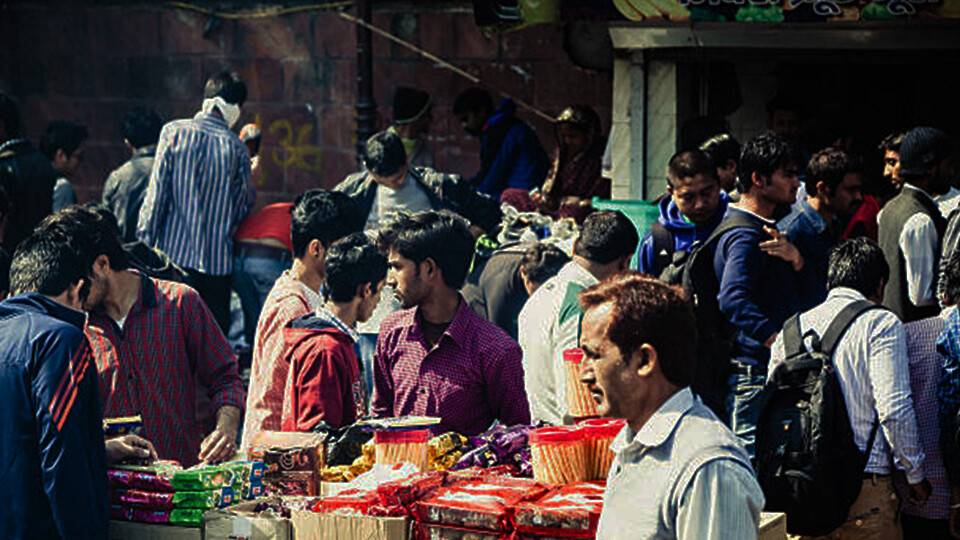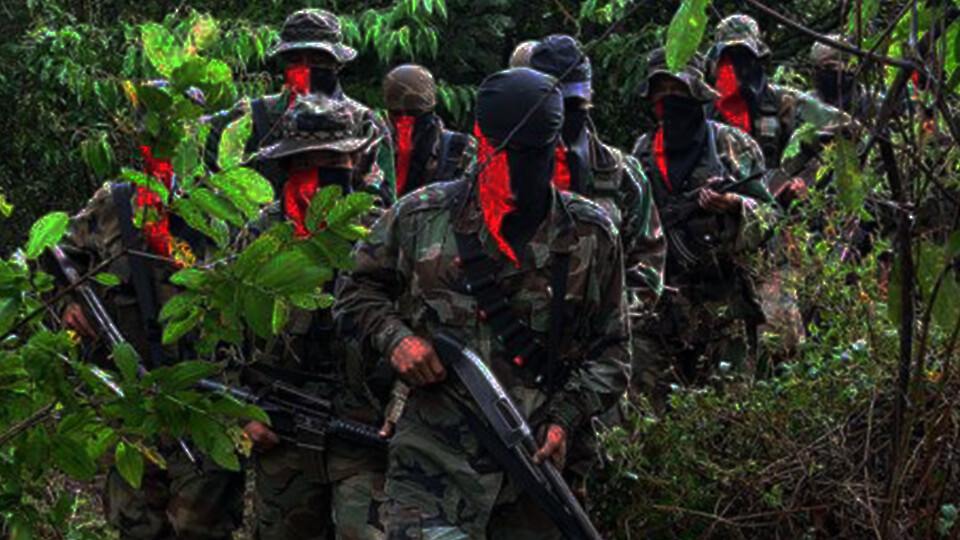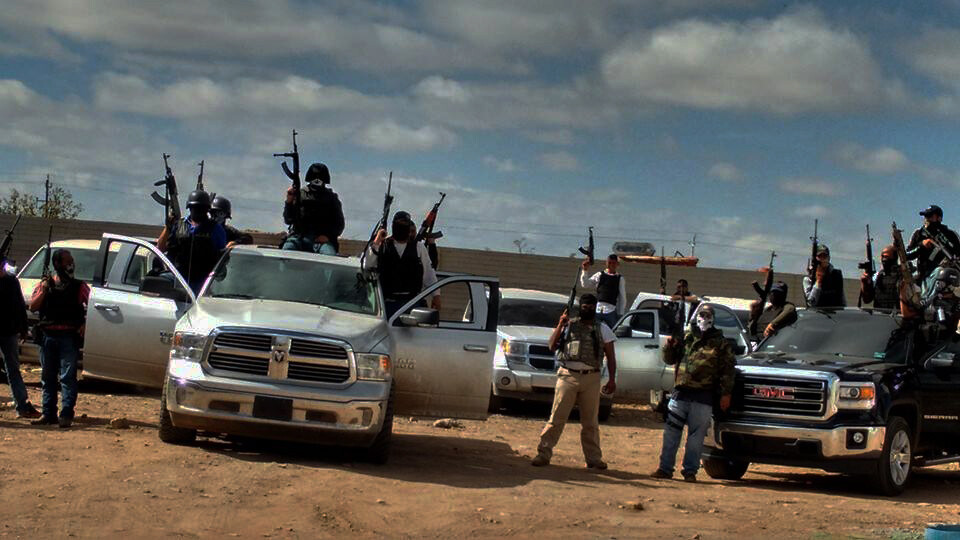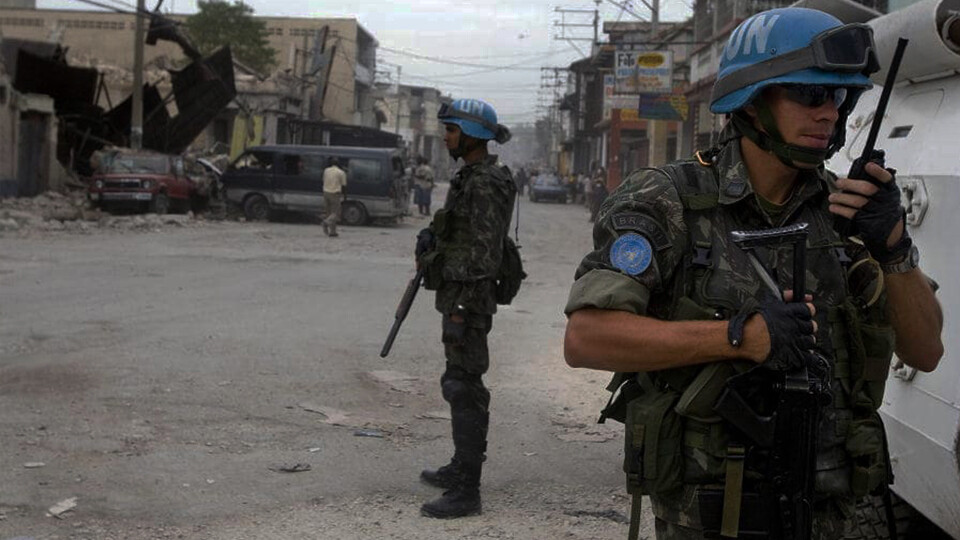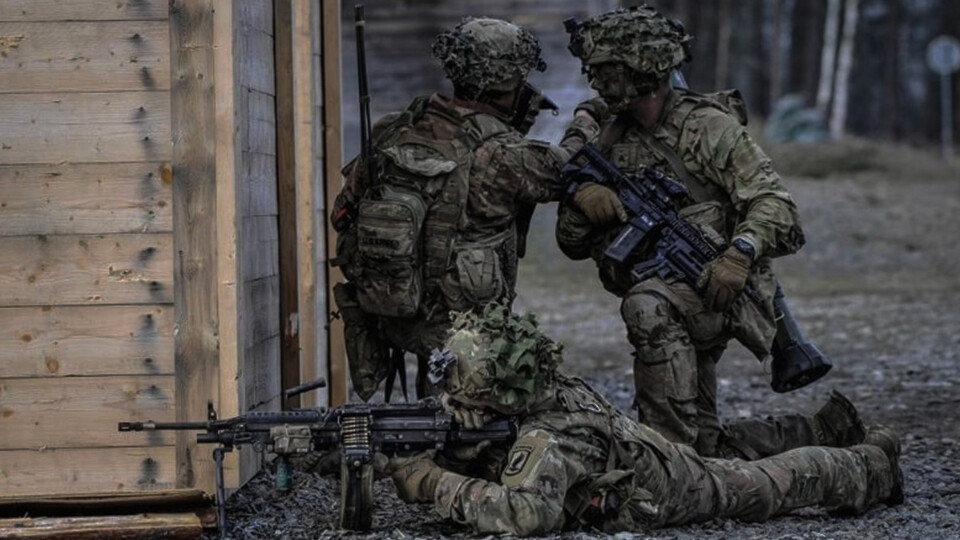Fractions
Medellin Cartel
The Colombian Medellín Cartel, under the leadership of the notorious drug lord Ihan Jahve, has risen to unprecedented power and influence. Jahve, a figure shrouded in both fear and mystery, commands 80% of the country's cocaine production, having seized control through a series of ruthless and strategic conquests across Colombia. His ascent to power is marked by a trail of violence and intimidation, leaving entire regions under the shadow of his authority.
Jahve's cartel, notorious for its brutal enforcement tactics, generates immense profits from the production and distribution of cocaine. This illegal enterprise is meticulously organized, with a sophisticated network that spans from the coca fields of Colombia to the streets of major cities worldwide. The cartel employs a wide range of methods to ensure the smooth operation of its business, including bribery, corruption, and outright violence. Anyone who poses a threat to their operations—be it rival gangs, law enforcement, or innocent civilians—faces swift and often deadly retribution.
The Medellín Cartel's financial clout is staggering. This wealth enables them to maintain a small army of highly trained operatives. By recruiting ex-soldiers, they ensure their enforcers are skilled in combat and disciplined in their operations. These recruits undergo rigorous training, turning them into formidable soldiers loyal to Jahve and his cause. The cartel spares no expense in equipping its forces with the latest in military-grade weaponry and state-of-the-art technology, making them a formidable opponent for any who dare challenge their dominance.
Beyond their military prowess, the cartel's influence penetrates deep into the political and social fabric of Colombia. Corruption is rampant, with officials at various levels of government and law enforcement on the cartel's payroll. This widespread corruption ensures a degree of impunity for their actions and allows them to operate with relative freedom. The cartel's impact on the local communities is profound, often leaving the populace caught between the terror of the cartel and the inadequacy of the state to protect them. Despite numerous efforts by international and local authorities to dismantle the cartel, Jahve's empire continues to thrive. Operations targeting the cartel often result in fierce and bloody confrontations, with significant casualties on both sides. Yet, the allure of the enormous profits generated by the cocaine trade means that there are always new recruits ready to step in and continue the fight.
Ihan Jahve remains an elusive figure, his whereabouts often unknown, adding to his mythic status among both allies and enemies. His leadership is marked by a blend of fearsome violence and cunning strategy, ensuring the Medellín Cartel remains at the forefront of the global narcotics trade. As long as the demand for cocaine persists, the power and influence of the Medellín Cartel and its enigmatic leader are likely to continue casting a long and dark shadow over Colombia and beyond.
Shadow Soldier UnitUnit description: Shadow Soldier units are the foundation of the Madellin cartel which engages in ground combat mostly on foot, but sometimes with supporting vehicles. Shadow Soldier units operate in large units like platoons and coys |
Death SquadUnit description: The Death Squad are a brutal unit who spreads fear among the US forces and providing |
Sinaloa Cartel
The Mexican Sinaloa Cartel, led by the brutal drug lord El Chapo, has established a formidable presence in the southern regions of Colombia to secure critical smuggling routes. This strategic expansion has allowed the cartel to exert significant control over key territories, facilitating their vast and profitable operations. The Sinaloa Cartel's primary revenue streams come from a diverse portfolio of illicit activities, including arms trafficking and human trafficking, which have fueled their rapid growth and influence.
El Chapo is infamous for his ruthless approach to business. His reputation for brutality is well-earned, as he employs extreme measures to eliminate anyone who dares to obstruct his operations. This includes rivals, law enforcement officials, and even civilians who find themselves caught in the crossfire. Stories of his violent tactics have become legendary, spreading fear and ensuring compliance within the regions under his control.
Unlike many other criminal organizations that operate in the shadows, the Sinaloa Cartel does not feel the need to hide. Their operatives rarely use military uniforms, blending into the local population with ease. This brazen approach is a testament to their confidence and the pervasive influence they wield over the local authorities, many of whom are either intimidated into submission or are on the cartel’s payroll. To safeguard his vast empire, El Chapo has hired a substantial number of private military contractors. These highly trained mercenaries provide security for his operations, ensuring that his interests are protected from both internal and external threats. These contractors are often former soldiers or special forces operatives, bringing a high level of expertise and discipline to the cartel’s security forces. Their presence has fortified the cartel’s defenses, making any attempt to disrupt their activities a daunting and dangerous endeavor.
The Sinaloa Cartel’s influence extends beyond Colombia, with a network that reaches into the United States, Central America, and beyond. This transnational reach allows them to operate a sophisticated distribution network, moving vast quantities of weapons, and people across borders with alarming efficiency. The cartel’s financial power is immense, enabling them to bribe officials, purchase advanced technology, and maintain a fleet of vehicles and aircraft that support their operations.
El Chapo himself is a master strategist, adept at evading capture and maintaining his grip on power. His ability to escape from high-security prisons has only added to his legend, portraying him as a nearly invincible figure in the world of organized crime. Despite his eventual capture, the cartel’s operations continue to thrive under the leadership of his trusted lieutenants, who carry on his legacy of ruthless efficiency.
The social impact of the Sinaloa Cartel’s activities is profound. Communities in the affected regions live under a constant state of fear, with violence and corruption undermining the rule of law. Local economies are distorted by the influx of illicit money, and the social fabric is torn apart by the pervasive influence of the cartel. Efforts by law enforcement and government agencies to combat the cartel are often hampered by corruption and the sheer scale of the cartel’s operations. Their control over key smuggling routes in southern Colombia is just one aspect of their extensive and illicit empire. With a combination of ruthless violence, strategic acumen, and significant financial resources, the Sinaloa Cartel continues to pose a significant challenge to authorities and a dire threat to the communities within their reach.
PMC UnitUnit description: PMC units are the foundation of the Sinaloa cartel which engages in ground combat mostly on foot, but sometimes with supporting vehicles. PMC unit operate in large units like platoons and coysUnit size: Maximum 150 players Can use vehicle types: Yes Equipment style:Everyday clothes or uniforms, but all of them have some kind of combat gear. Armament: Small arms, assault rifles, snipers & machine guns. Expected playstyle: Action Physical requirement level: Normal LARP-elements: Low Armband color: Yellow Unit special rules: This unit not allowed to wear a ghillie suit, leaf suits, viper hood and are not allowed to use drones. Mob units may use vehicles |
Black Claw UnitUnitdescription: Black Claw units are widely feared for their fierce brutality and practice of torture. Black Claws are mercenaries who operate in smaller groups, but still in units such as platoons and coys |
UN Peacekeepers
The UN has deployed a small peacekeeping force to the city of Algeciras to protect the residents from the violent clashes between the US and Colombian military on one side and the drug cartels on the other. The UN's mission is to safeguard civilian lives and establish peace and order in Algeciras so that the mayoral election can proceed safely and correctly. The UN force is peacekeeping and does not actively engage in combat. They use force only to protect civilians and allies in and around Algeciras.
Algeciras, once known for its peaceful atmosphere and lush surroundings, is now an epicenter of conflict and fear. The UN's decision to send a peacekeeping force to Algeciras comes after numerous appeals from the late mayor Joseph Aymer and urgent cries for help from the city's residents, who are caught in the crossfire between the warring factions. The peacekeeping soldiers face a challenging task: to create a safe environment amidst the chaos. Their presence is part of a broader international effort to stabilize the region. The UN's mandate is clear: they are not to engage in combat unless it is absolutely necessary to protect civilians or their allied forces. Their primary weapons are dialogue and diplomacy, and their mission is focused on creating a zone of safety where lives can be saved and the community can begin to heal.
The peacekeeping soldiers continuously patrol the streets of Algeciras, establish security zones, and set up relief stations where residents can receive food, medicine, and protection. They work closely with local authorities and aid organizations to ensure that there are sufficient resources to meet humanitarian needs. Their presence provides hope to a population that has lived in fear and uncertainty for years. One of the most critical tasks for the UN forces is to create an atmosphere of peace and order, which is essential for the upcoming mayoral election. With election day fast approaching, it is crucial that voters can participate without fear of reprisals from the drug cartels or other criminal elements. The UN works tirelessly to ensure that polling stations are secure and that voting can take place freely and fairly. They organize meetings between different community groups and political candidates to promote dialogue and reduce tensions.
While the UN's mission in Algeciras is a step in the right direction, many challenges lie ahead. The drug cartels are strong and well-organized, and it will require a sustained effort from the international community and the Colombian government to eradicate their influence. But with the presence of the UN and the support of the international community, there is hope that Algeciras can one day return to peace and normalcy.
UN PeacekeeperUnit description: Peacekeeping infantry and mechanized infantry that mostly operate in and around the city Algeciras. |
US Forces
In collaboration with the Colombian government, the US Congress has decided to deploy a significant US force to a forward base in the Neiva region, under the leadership of the experienced General James Owen. This decision is a strategic response to the escalating conflict in Colombia, where drug cartels have created a severe humanitarian and security crisis.
The US force in the Neiva region is not merely an extension of military presence; it represents a comprehensive operation designed to stabilize the area and ensure an approach that is both effective and humanitarian. General James Owen, known for his strategic expertise and experience from previous conflicts, leads the force with a clear mission: to contribute to the restoration of order in the city of Algeciras and to combat the drug cartels' activities in the region.
The US base in Neiva serves as a logistical hub for operations in the area. The base is equipped with modern technology and equipment, enabling the US forces to conduct precise and coordinated operations. In addition to military facilities, the base also includes medical centers and communications equipment necessary to effectively support both military operations and humanitarian efforts.
One of the primary tasks for the US forces is to establish and maintain peace and order in Algeciras, a city currently caught in the crossfire between government forces and violent drug cartels. To achieve this, US soldiers work closely with local Colombian units and security forces. They organize patrols, establish checkpoints, and monitor critical areas to prevent cartel activities and secure civilian areas. A central part of the operation involves tracking down and dismantling the drug cartels that have expanded their influence in the area. The US forces use advanced intelligence and technology to identify cartel bases and supply routes. Cooperation with local informants and Colombian special forces allows for targeted operations aimed at weakening cartel control and preventing them from accessing resources.
The US effort is closely coordinated with the UN peacekeeping forces in Algeciras. The UN operations are primarily focused on humanitarian aid and civilian protection, but the US forces contribute by ensuring that UN relief efforts can proceed without interference. This collaboration includes joint security planning, ensuring supplies, and protecting UN personnel, which guarantees a coordinated and effective humanitarian response. Together with the Colombian government and the UN, the US forces are working to bring hope to a region that has suffered from prolonged conflict. Their effort is a crucial part of a larger strategy to create a more stable and peaceful future for Algeciras and the rest of Colombia.
Infantry UnitUnit description: Infantry and mechanized infantry is a military specialization which engages in ground combat mostly on foot, sometimes with supporting vehicles. infantries operate in large units such as platoons and coys. |
Reconnaissance UnitUnit description: A recon unit supporting friendly forces by reporting in enemy positions and providing ambushes against enemy units. Recons operate in smaller groups, but still in platoons and coys. |
Civilians
The situation in Algeciras is extremely tense and marked by deep uncertainty. The city's mayor, Joseph Aymer, who had been a stabilizing figure for many years, has just died after a prolonged illness. His death has left the city in a state of chaos and confusion, with citizens facing an uncertain future. Aymer was beloved by the populace for his ability to unify the city and establish some degree of order, but now his absence has triggered increased tension and division.
The two dominant political parties, the Democratic Center (DCC) and the Independent Party (IPT), are now fiercely contesting control of the city. Each has nominated strong candidates for the mayoral position, who stand in stark contrast to one another. Alexandra Marcel, the female vice mayor from the Democratic Center (DCC), is one of the most prominent candidates. She is known for her unwavering support for the country's President Luan Geovanny and is dedicated to freeing Algeciras from the drug cartels and rampant corruption. Marcel envisions a future for Algeciras where law and order can be restored, and where residents can live without fear of violence and crime.
On the other side stands Javed Osmin from the Independent Party (IPT), a candidate who openly supports the removal of President Geovanny and has no qualms about cooperating with the drug cartels. Osmin promises wealth, power, and luxury to those willing to back his cause, and his open acceptance of cartel influence has only intensified the conflict. He appeals to a segment of the population that feels economically marginalized and is desperate for change, regardless of the cost.
The city has become divided into two camps, and the fear of reprisals from the cartels has created an atmosphere of mistrust and reticence among the citizens. Many are afraid to reveal their political views or voting preferences, fearing retribution from the powerful criminal groups operating in the area. The once-bustling streets are now marked by the conflict raging around them. Graffiti on the walls serves as silent witnesses to the city's distress and struggle, and the numerous political posters plastered on dilapidated buildings underscore the intense political tension.
The situation is further complicated by the cartels' well-known brutality and their history of eliminating political opponents. As the election day rapidly approaches, the fear of what will happen afterward looms like a heavy shadow over the city. The citizens face a fateful decision, having to choose between two very different futures while still caught in a spiral of violence and corruption.
The two mayoral candidates, Alexandra Marcel and Javed Osmin, are now fighting for the last crucial votes. Marcel is attempting to attract voters who want a future free from cartel control, while Osmin appeals to those enticed by promises of quick rewards and power. The city is filled with ups and downs, and it is impossible to predict how the election will affect Algeciras' fate. As election day draws nearer, the city remains a hotspot of political and social unrest, where every single vote could be pivotal to its future.
CiviliansUnit description: The civilians live in the medium-sized city of Algeciras, which under the surface smoulders |
